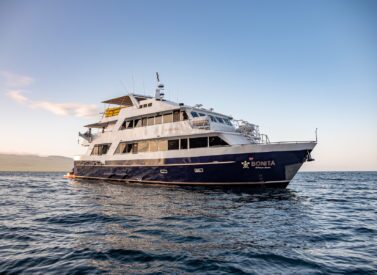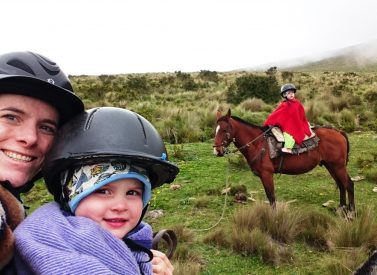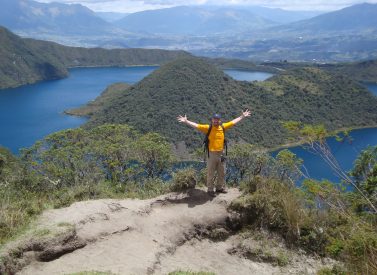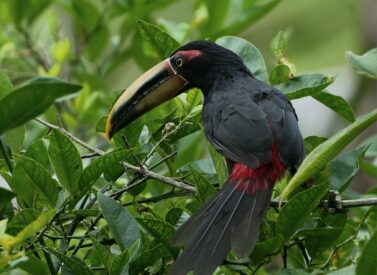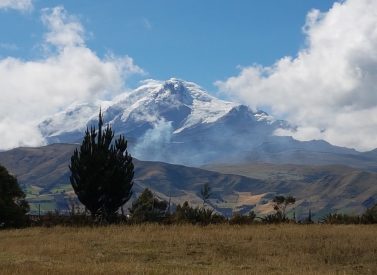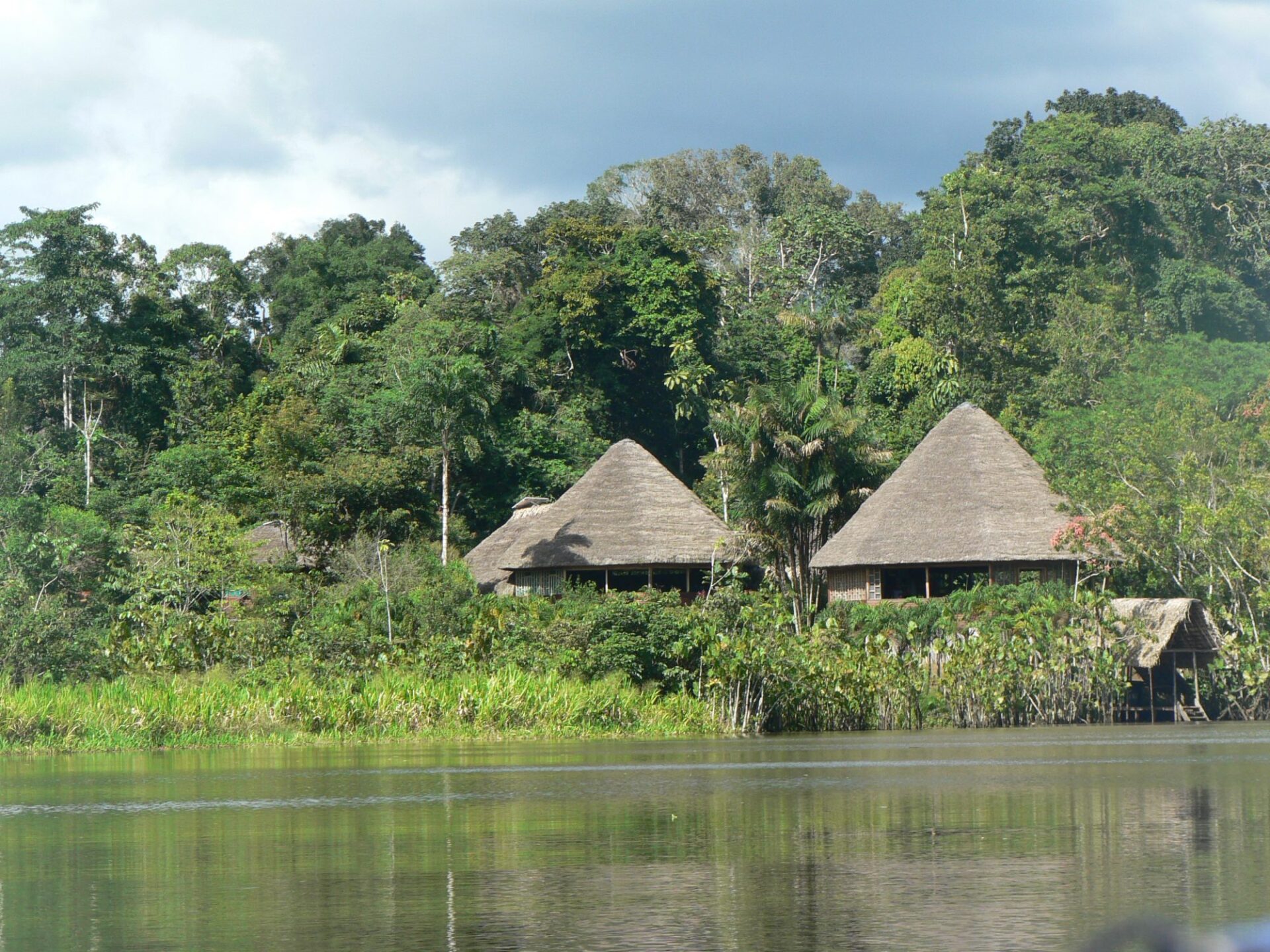Best Time to Visit Ecuador: Weather & Seasons
 by Kat Dougal on 11th March, 2025
by Kat Dougal on 11th March, 2025
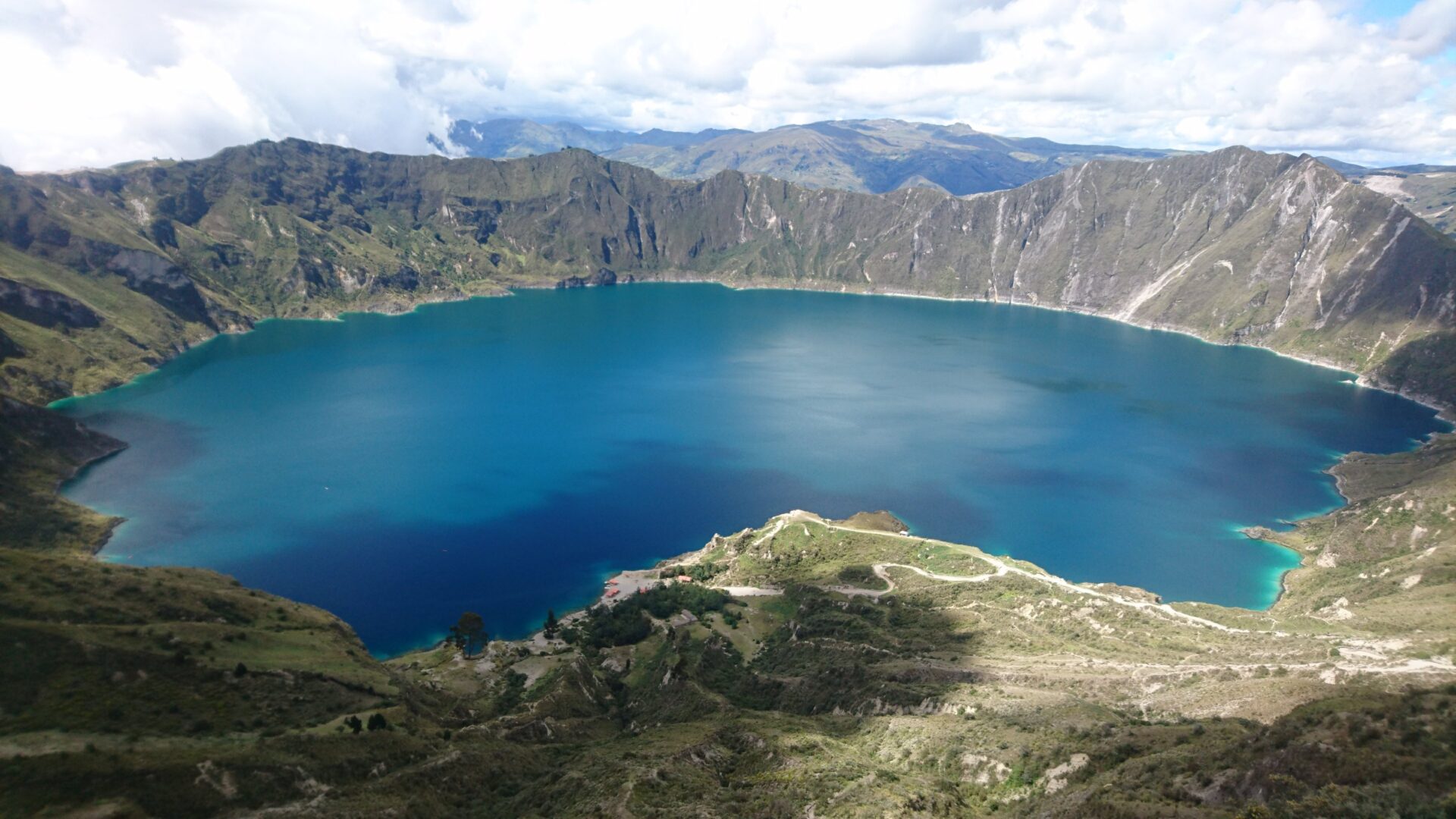
Best time to visit Ecuador explained.
When is the best time to visit Ecuador? Ecuador is a year-round travel destination thanks to its location on the equator.
That said, its weather is best defined by region. Many of its Andean mountain ranges have their own micro-climates.
The best time to visit Ecuador and its diverse regions—Amazon, Galapagos, Cloud Forest, or the Andes—often depends on what activities you’d like to enjoy.
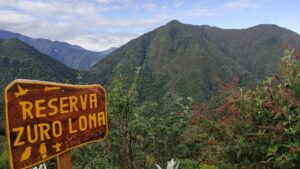
When Is the Best Weather in Ecuador?
The best weather in Ecuador by region is:
- Andes Mountains: June to September (dry season) is the best time for clear skies, good weather conditions, and drier conditions for hiking. December to January features a second, short dry spell.
- Galapagos Islands: Relatively cool and dry from June to November with cooler sea temperatures, turning hotter and humid with warmer oceans from December to May.
- Amazon basin: June to October (dry season) means less rainfall and more animals dropping to the riverside to drink—and be spotted! March to June are the wettest in Ecuador’s Amazon.
- Cloud forest: The dry season is good for animal spotting while the wet season (Feb-May) is great for birdwatching, orchids, and insects.
- Quito: Quito is a year-round destination with sunny mornings. Expect afternoon showers at any time, while many days remain clear.
- Beaches: December to May is when beach lovers most enjoy the warmer Ecuadorian weather.
Remember that the season differences are not huge in Ecuador, with little difference between dry and rainy seasons.
For example, Quito’s average daytime temperature in the dry season is around 18°C/64°F, dropping to 17°C/62°F in the wet season.
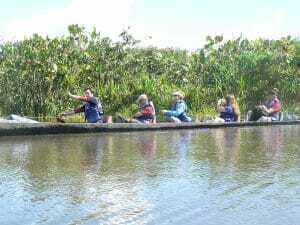
What Is the Best Month to Go to Ecuador?
The most popular times to visit Ecuador are June to September and December to January. These drier seasons also coincide with lots of festivals and cultural activities for guests to enjoy.
The best travel month depends on interests. Hikers might choose to visit from June to December, while birdwatchers may visit in March. Galapagos visitors enjoy a year-round visiting window, although those with seasickness may wish to avoid September to November when the seas are traditionally a little rougher.
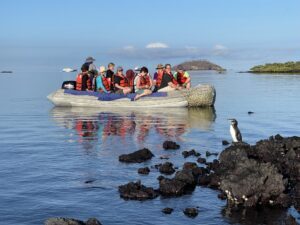
When Is the Rainy Season in Ecuador?
The Ecuadorian Andean rainy season is from October to May. That said, most months experience an average of 11-15 rainy days with 10-15cm/4-6 inches of total rainfall each month.
By comparison, June to August have an average of 6-7 rainy days with 2.5cm/1 inch of total rainfall.
On the ground, the rainy season means a slightly higher chance of afternoon showers than in the dry season. Temperature-wise, the rain season’s average is 14.5°C/58°F compared to 15°C/59°F in the dry season.

The Weather in Ecuador’s Andean Highlands
In the Ecuadorian highlands, there is a slight seasonal temperature variation; instead, the weather depends mainly on altitude.
Speaking broadly, June to September are the warmest and driest months, with a short and dry spell in December and January. During the dry season, there is an average of six to eight hours of daily sunshine.
The higher you go, the colder it gets. The upper Andean valleys may have average temperatures around 10-12°C/50-54°F, reaching 20-25°C/68-77°F in lower reaches with full sun.
Those reaching 4,000m/13,123ft may be among 7-9°C/45-48°F. Nights are cool in most mountain areas, and could reach freezing.
People climbing ice-clad peaks like Cotopaxi and Cayambe will experience sub-zero temperatures as they hike above the snow line.
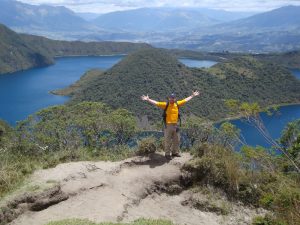
Cuicocha Lake
February to May also sees plenty of sunshine and clear skies in the mornings but are often characterised by rainfall in the afternoon. Nevertheless, many people still visit in the “wetter” months as you can plan your days accordingly, trekking and sightseeing in dry weather for most of your day.
The Best Weather in The Galapagos Islands
The Galapagos Archipelago can be visited at any time of year. They are tropical islands and always relatively warm, and whenever you go to the Galapagos, there is always a lot happening, wildlife-wise.
However, there are two marked seasons in the Galapagos. Our Galapagos Weather Guide has more details.
January to June: Galapagos warm season
- Warmer, wetter season
- Lots of sunshine and the chance of afternoon showers
- Warm days (22-32°C/72-89°F)
- Calm seas (around 20°C/70°F) are great for sailing and open sea sailing.
- February and March are the warmest months
- Great for snorkelling with clear visibility
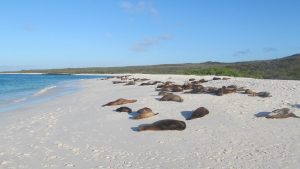
Sea lions, Española Island
July to December: Galapagos cooler season
- Dryer, cooler season
- Morning mist (garua) burns off during the day
- Fresher days, but still warm, at 15-22°C/60-72°F
- Cooler, sometimes choppier seas (15-22°C/60-72°F), cr for people suffering from seasickness
- Fantastic marine life brought by cooler sea currents
- Great snorkelling, but a wetsuit might be needed for some.
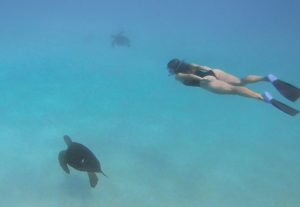
Weather in Ecuador’s Amazon Region
Rain can fall anytime in Ecuador’s Amazon region. March to May is the wettest period. However, it is the rainforest, so do expect to get wet at some point!
The dry season runs from June to October and is a great chance to see animals coming to the water to drink. Ecuador’s Amazon is almost always hot and humid. This can create spectacular electrical storms, particularly in the afternoon or evening when moisture has risen during the steamy day.
Temperatures will be high whenever you visit, with a 26°C/79°F average temperature from May to October rising to an average 27°C/81°F at other times.
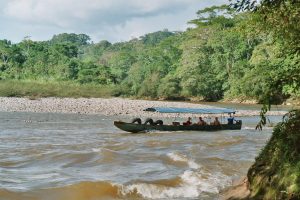
Liana Lodge canoe ride
The Costa – Ecuador’s Coast
On the Pacific coast, rainfall decreases from north to south. The coast can be enjoyed year-round, although from June to September, mornings are often grey with the “garua” mists.
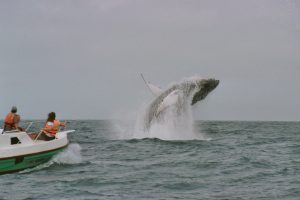
Whale-watching, Puerto Lopez
If you like to relax on sunny beaches, stick to December to May, the hottest and rainiest time of year. February to May are the hottest months (29°C/84°F), dropping to 26°C/79°F in June and July. Remember that most rainfall usually occurs late in the afternoon, while the rest of your day is hot and sunny.
June to September is the whale watching season in Puerto Lopez, and the spectacle is not to be missed if you don’t mind the slight change in weather. Rainfall is heaviest from July to September in this region.
Night time temperatures rarely drop below 20°C/68°F year-round.
Best Time to Visit Ecuador: Weather & Seasons
The best time to visit Ecuador is any time. Ecuador is a year-round destination. You can, however, choose different times of the year to suit your diary or travel style.
Whenever you visit, contact us to help design your tour. We’ll be able to advise on details like when to visit to avoid seasickness in the Galapagos Islands—finer points that ensure your holiday runs smoothly.
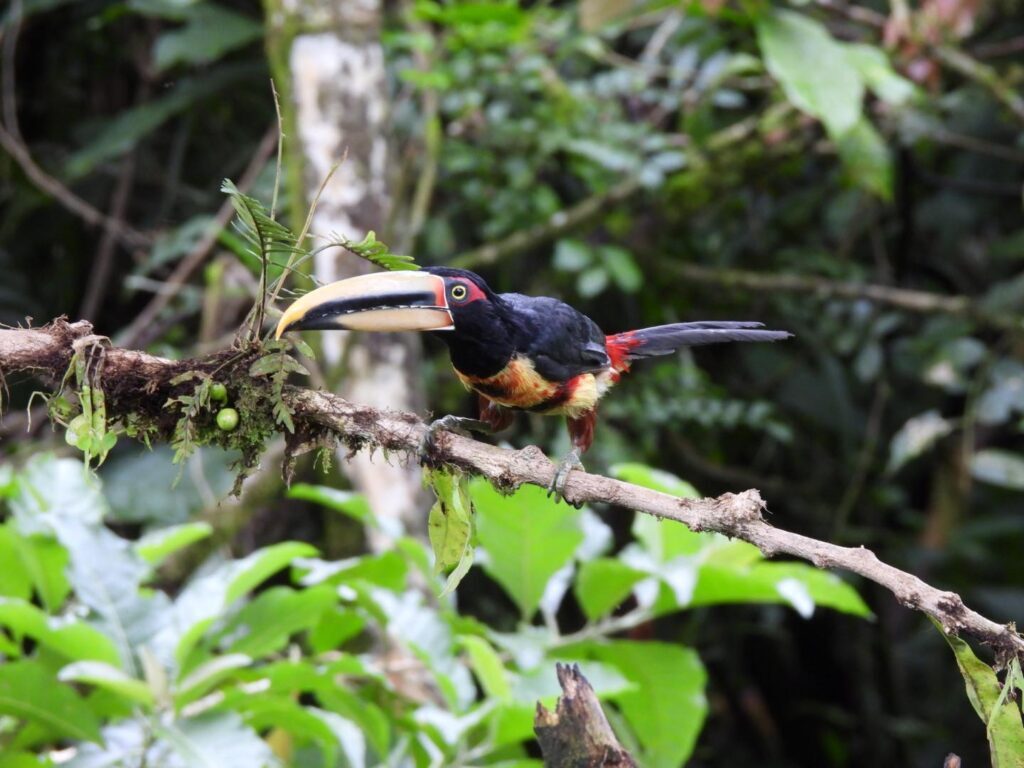


 a Group Tour
a Group Tour  a Tailor Made Tour
a Tailor Made Tour 